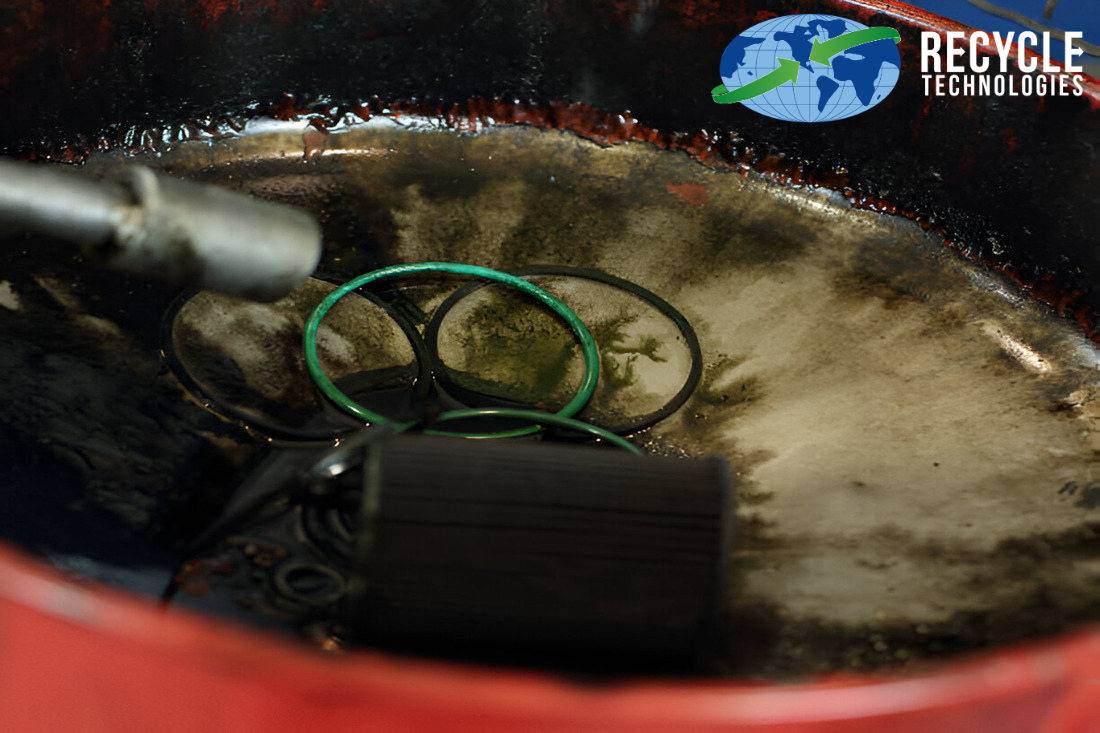Though it might sound like a small task, careless dumping of grease might bring about major environmental and plumbing disasters. Whether one deals with cooking grease from the kitchen or industrial grease from machinery, it is important to know its safe disposal methods. It may sound like a small task, but when disposed of carelessly, grease could get you on the wrong side of the environment, or it might just stub your plumbing efforts. There is no worse feeling than failure in investing; as such, you should know how to properly dispose of it.
Why Proper Grease Disposal Matters
Grease disposal gone wrong may result in several issues. Running extra grease down the sink is probably the greatest foul-up. While cooling, the grease coagulates and clings to the walls of the pipes. In a little time, there you will have some serious blockages in your plumbing system that will require much money for fixing. On a larger scale, in the sewage system, grease can lead to forming "fatbergs": huge collections of grease, oil, and other items that block sewers and may bring about overflows, leading to environmental contamination.
This, besides making a mess in the plumbing system, can be an environmental hazard. If grease is not disposed of properly, it can contaminate the water source, damage wildlife, and pollute. Thus, disposing of grease properly is not an issue of convenience but a social duty that serves the interests of the whole community.
Also Read: Effortless Waste Management: Best Way Disposal Revealed
Types of Grease and How to Dispose of Them
1. Cooking Grease
One common byproduct in the kitchen is cooking grease, from bacon fat, butter, frying oils and so forth. The best way to dispose of cooking grease is in its cooled and solidified state after it has been used. Once the grease has hardened, scrape it into some kind of sealable container, such as a tin can or glass jar. Once the container is full, you can throw it in the trash. The bag should be avoided to throw grease, since it may easily tear or start to leak due to its plastic material.
Yet another method of disposing of-or better still, recycling-cooking grease is by recycling it. Certain areas undertake this kind of recycling for biodiesel production. For more information on the subject, one may want to contact the local waste management services regarding whether they can take cooking grease in for fuel recycling. Not only does this save one from the nagging problems of plumbing troubles, but it also helps one to preserve the chain of energy sustainability.
2. Industrial Grease
Industrial grease, in most cases, is used on machinery. Proper care in disposing must thus be observed due to the potential chemical composition and hazards posed. Industrial grease must at no time be disposed of in regular trash or down the drain; rather, it must be collected in proper containers that are suitably labeled and leak-resistant.
Once all the industrial grease has been gathered, it can be taken to hazardous waste disposal facilities. The facilities should be well equipped for handling and disposing of industrial grease without pollution of the environment. Other companies are into recycling industrial grease; it will first be cleaned and purified for reuse. This will not only ensure safe disposal but also lead to sustainability and conserving the environment since the production levels for new grease will be low.
General Tips for Grease Disposal
Whatever the kind of grease, there are a few practices common enough to follow with a view to dispose of it safely. Anyway, be on the guard that each time you have some grease, you place it in some strong, sealable container. It secures from leaks and makes it more handy at handling. Also, grease should not be a mixture of other greases or oils; this might make it more intricately difficult to dispose of and heighten risks of contamination.
In case of its spillage, put some absorbent material onto it, such as cat litter or sawdust, or specifically designed oil-adsorbing materials. Afterwards, collect soiled material in a bag and seal; handle as required by local guidelines for hazardous waste. This will prevent further diffusion of the grease and further damages caused by it.
It is important that people get educated on the best ways of disposing of grease. Everyone in a house or workplace needs to be aware of the imminent dangers from grease disposal and how to handle it appropriately.
Conclusion
Proper grease disposal serves to protect your plumbing, maintain a healthy environment, and ensure good waste and pollution control throughout your community. Good grease disposal methods applied either in the kitchen, industrial facility, or work setting by far prevent serious problems down the road. By being keen on how to dispose of grease correctly, you will not only have protected your home but also it will be good for the environment.












